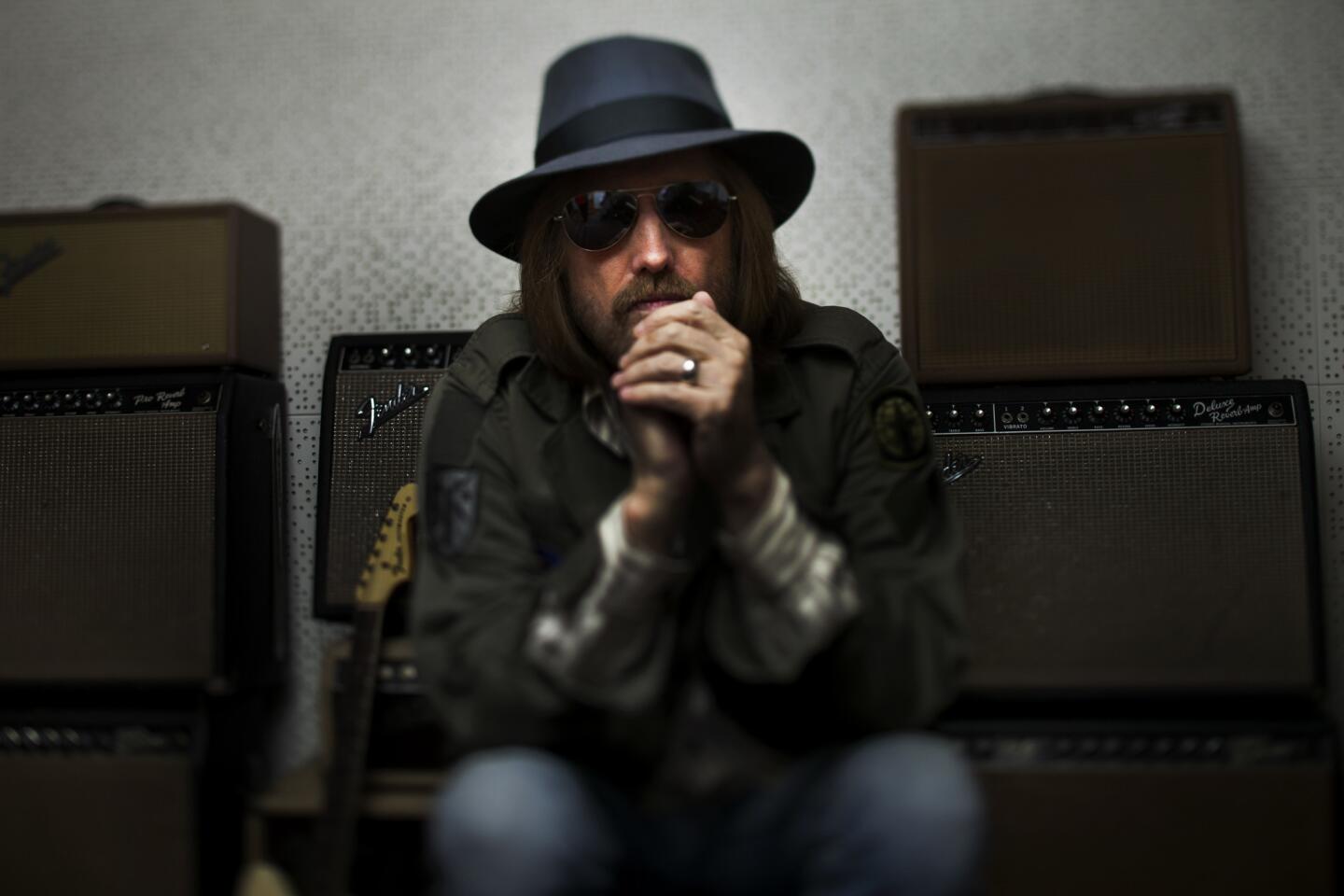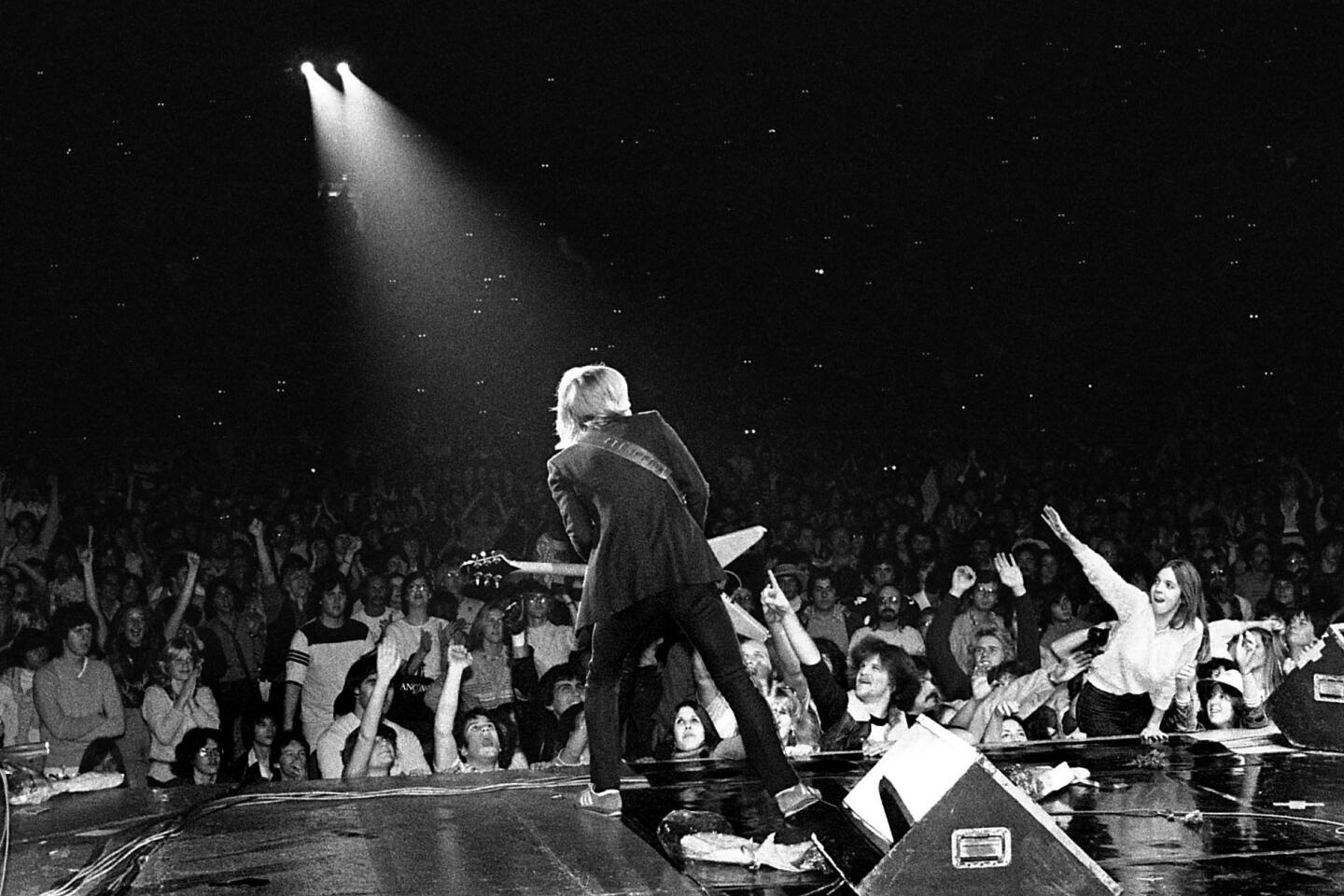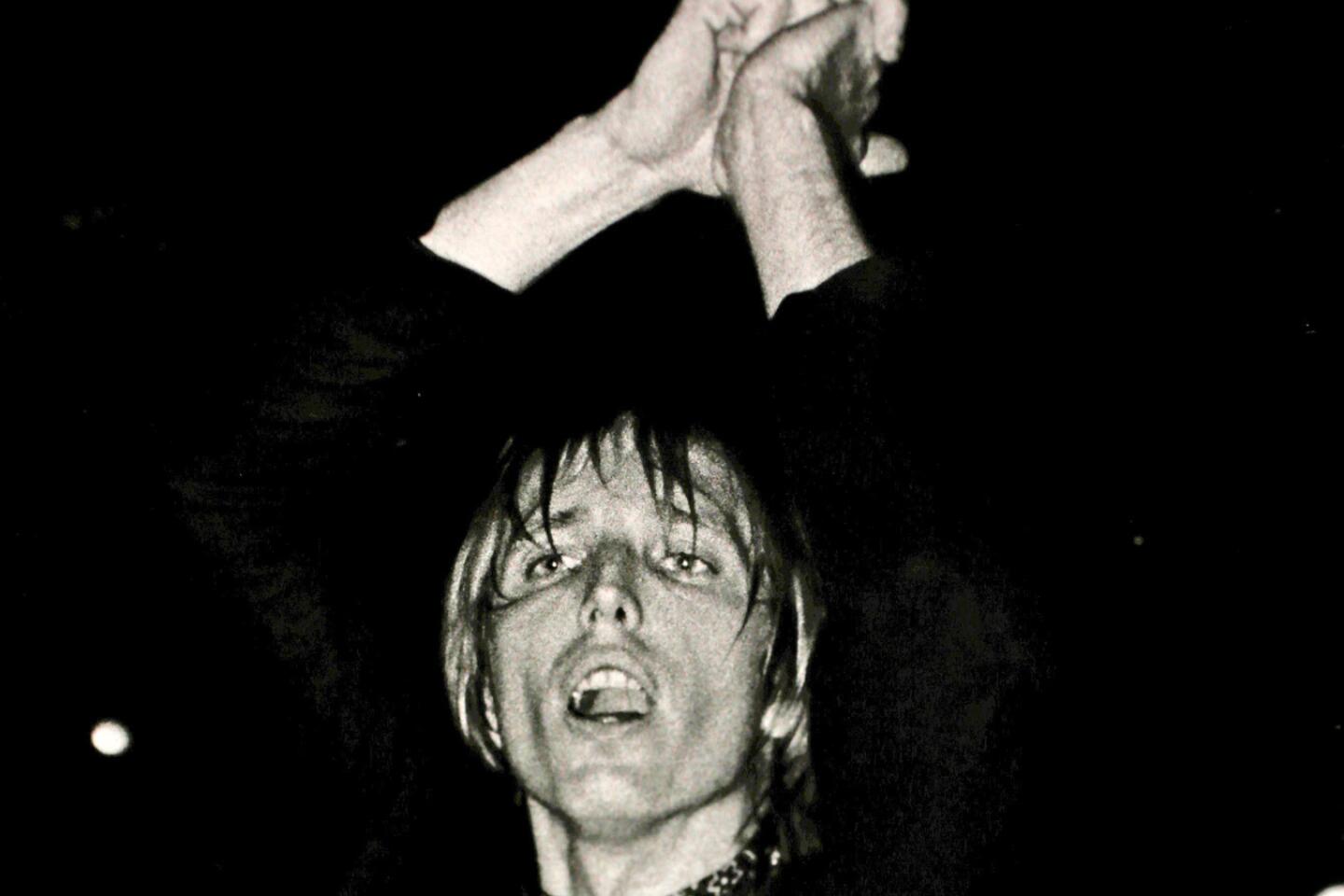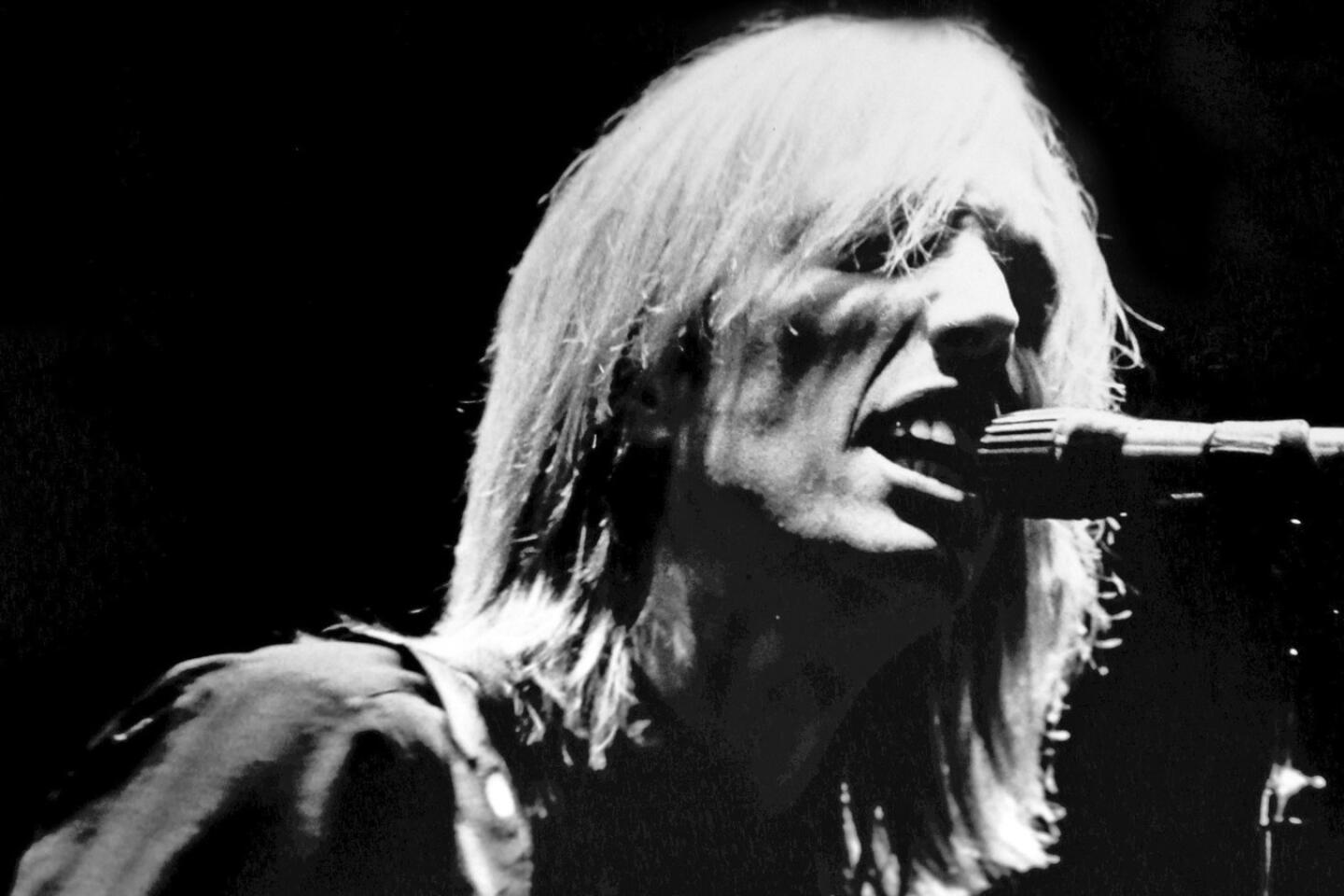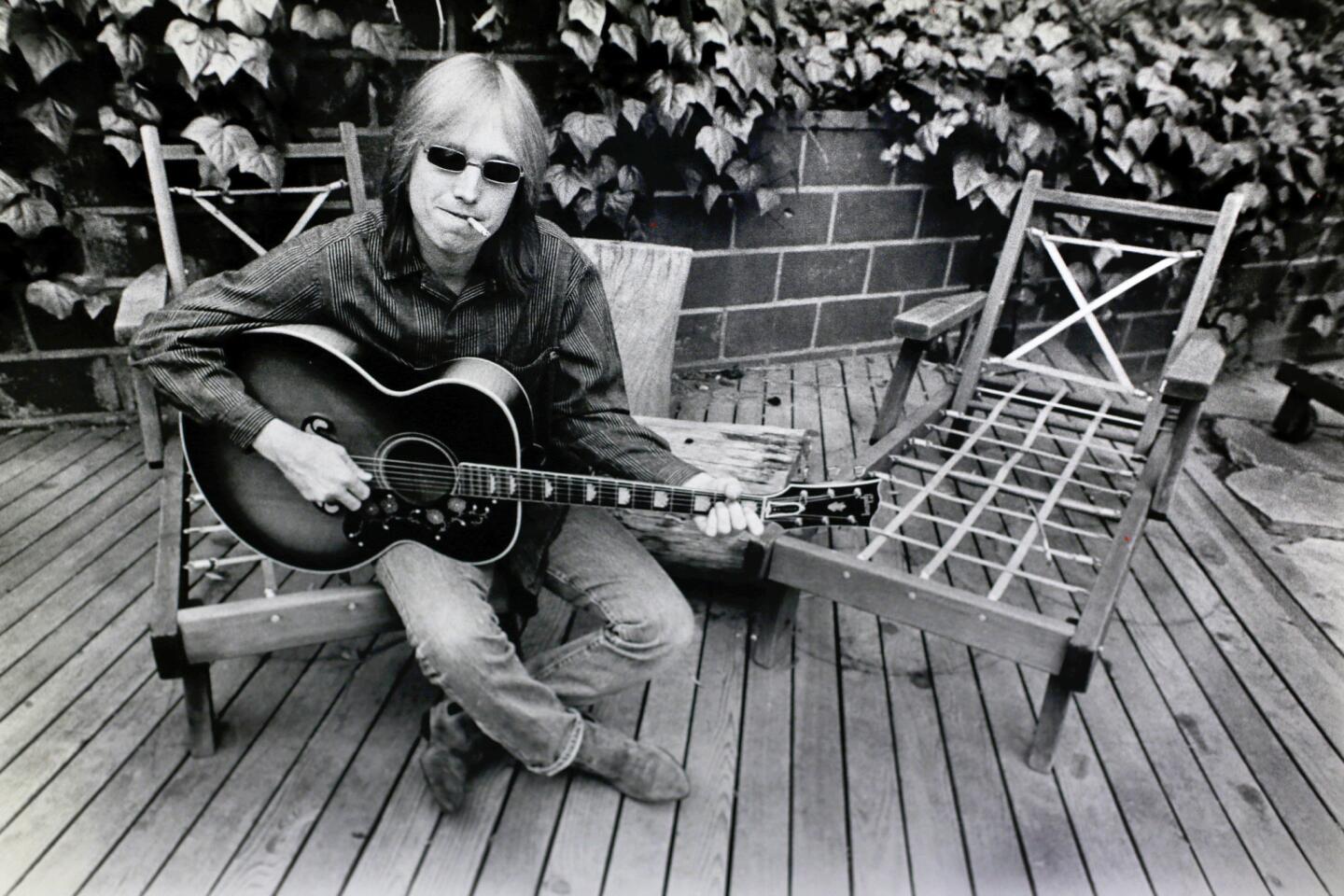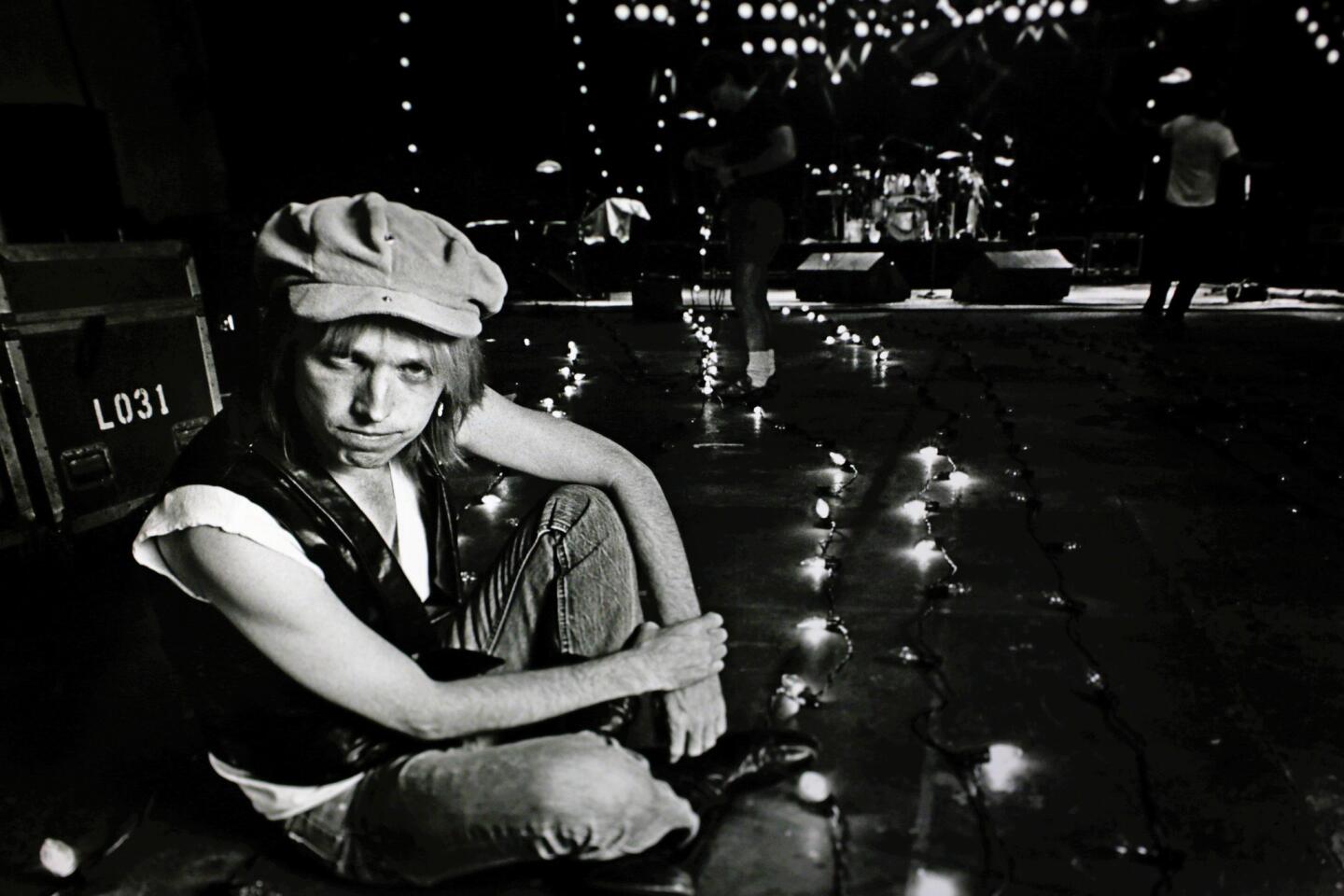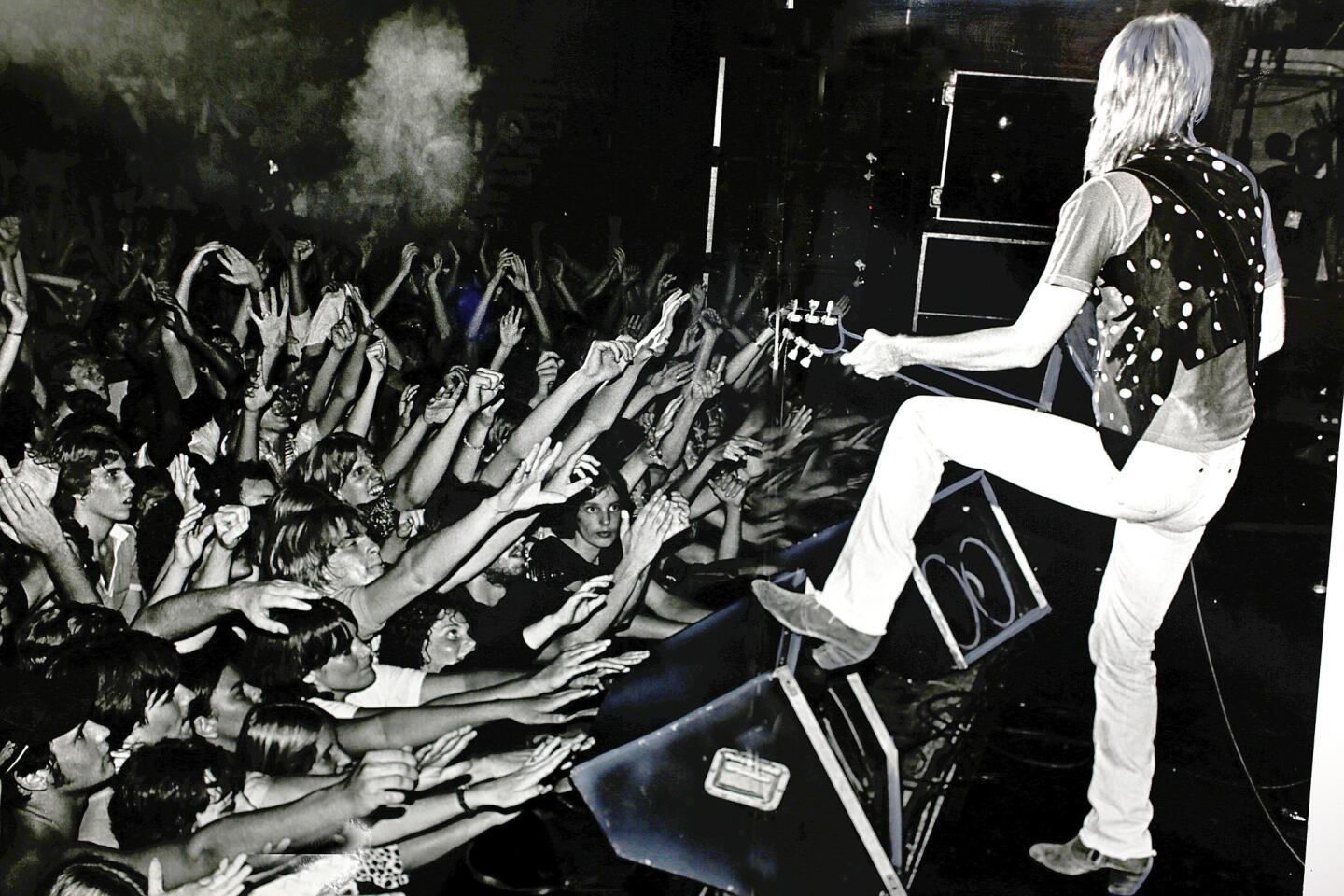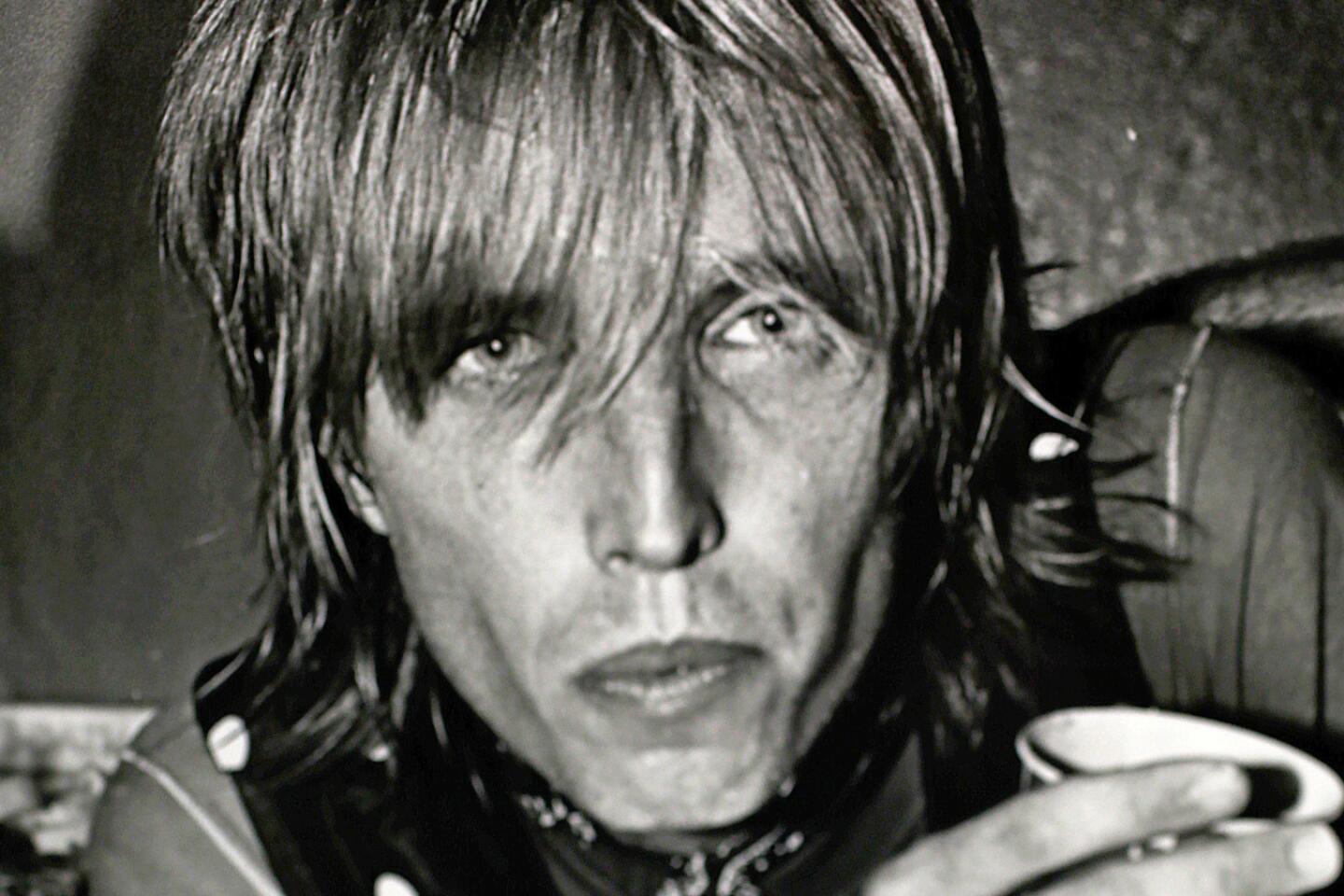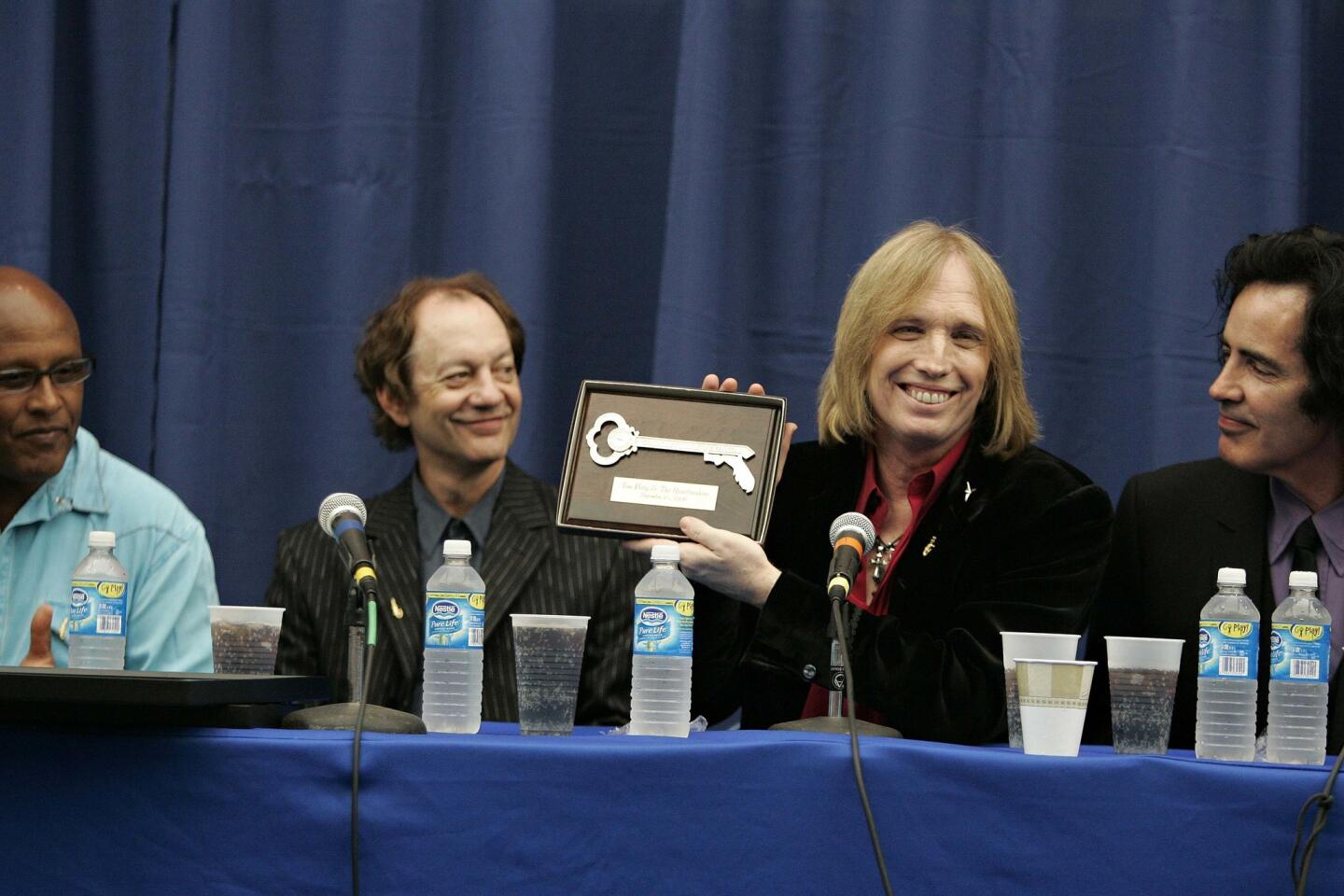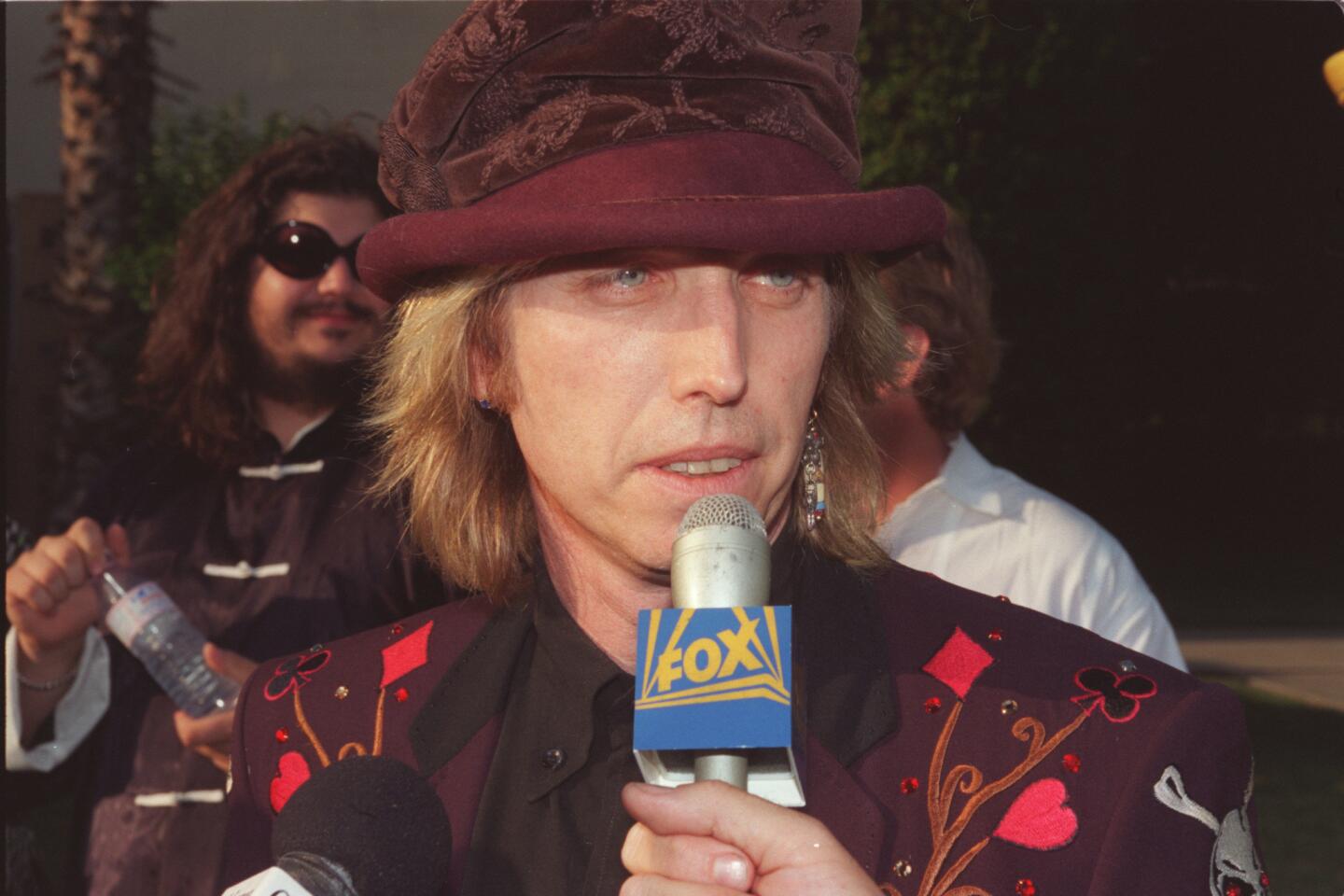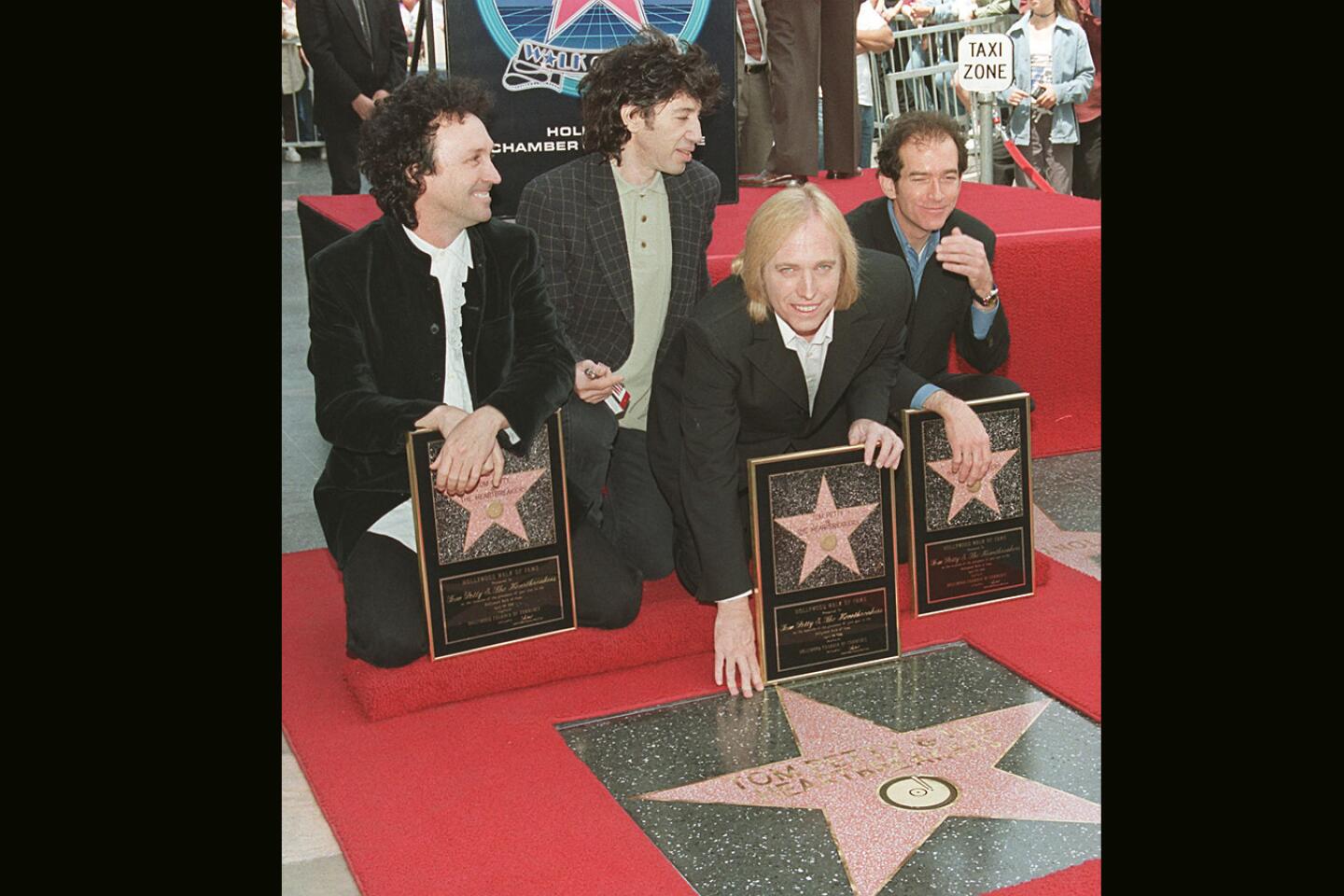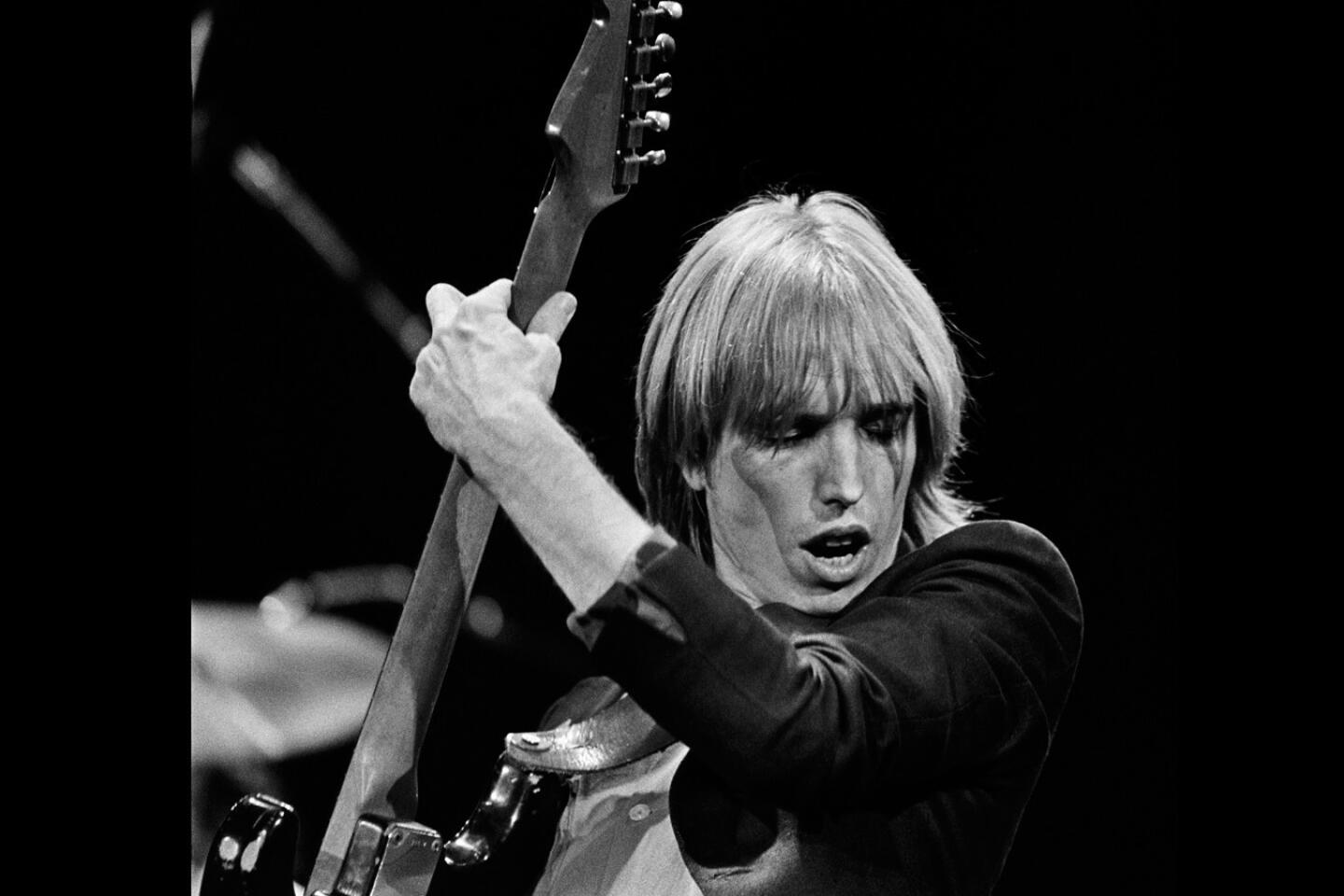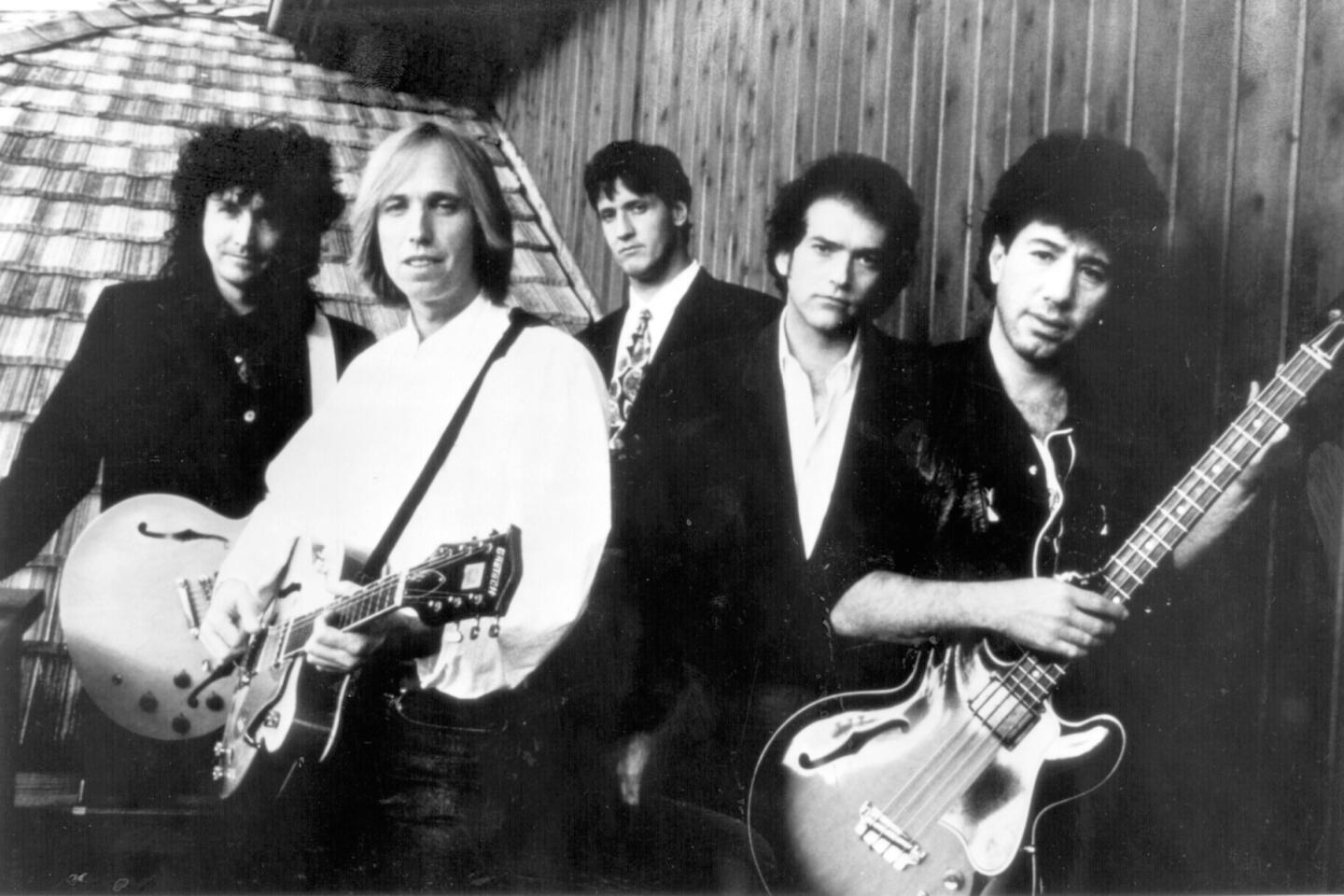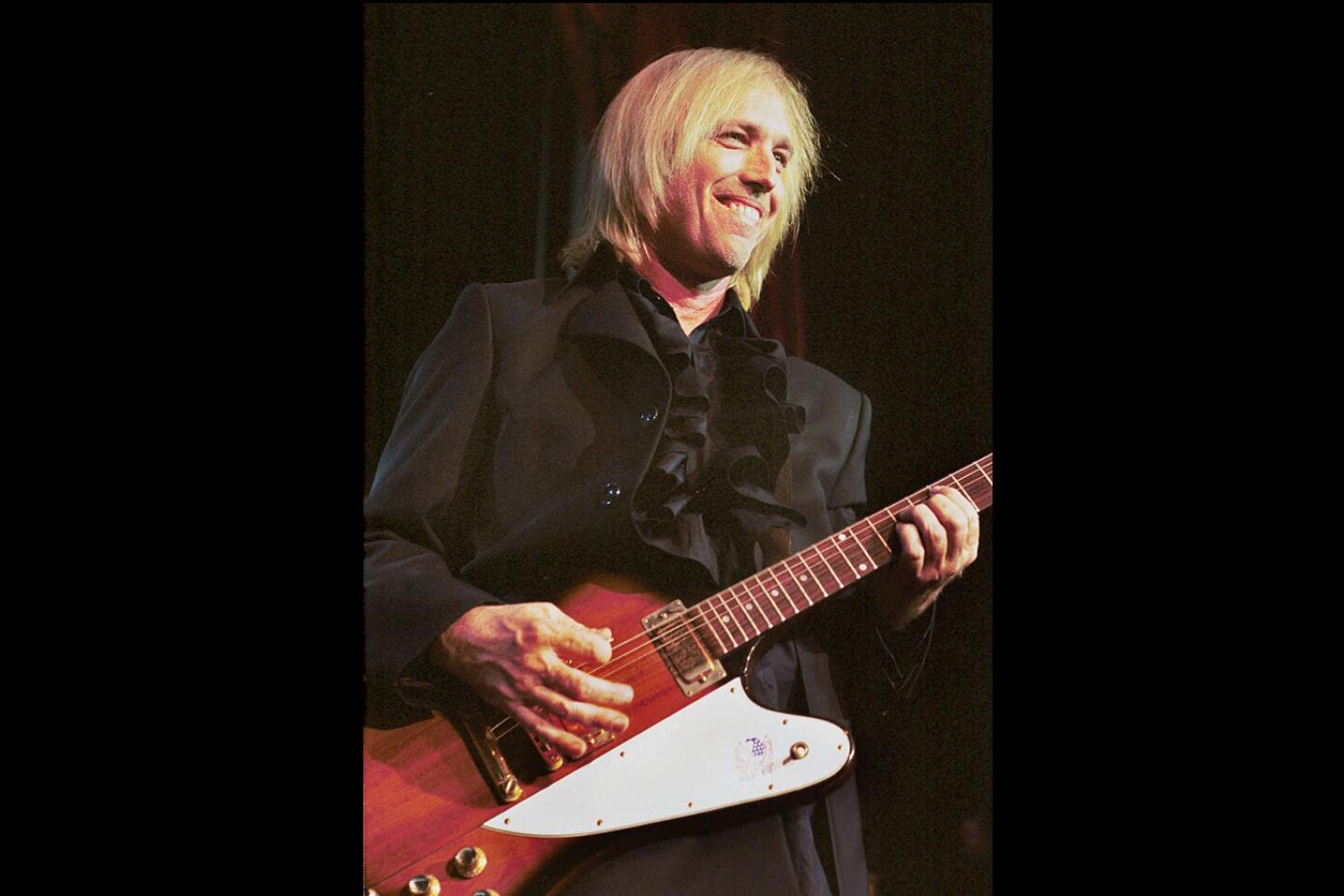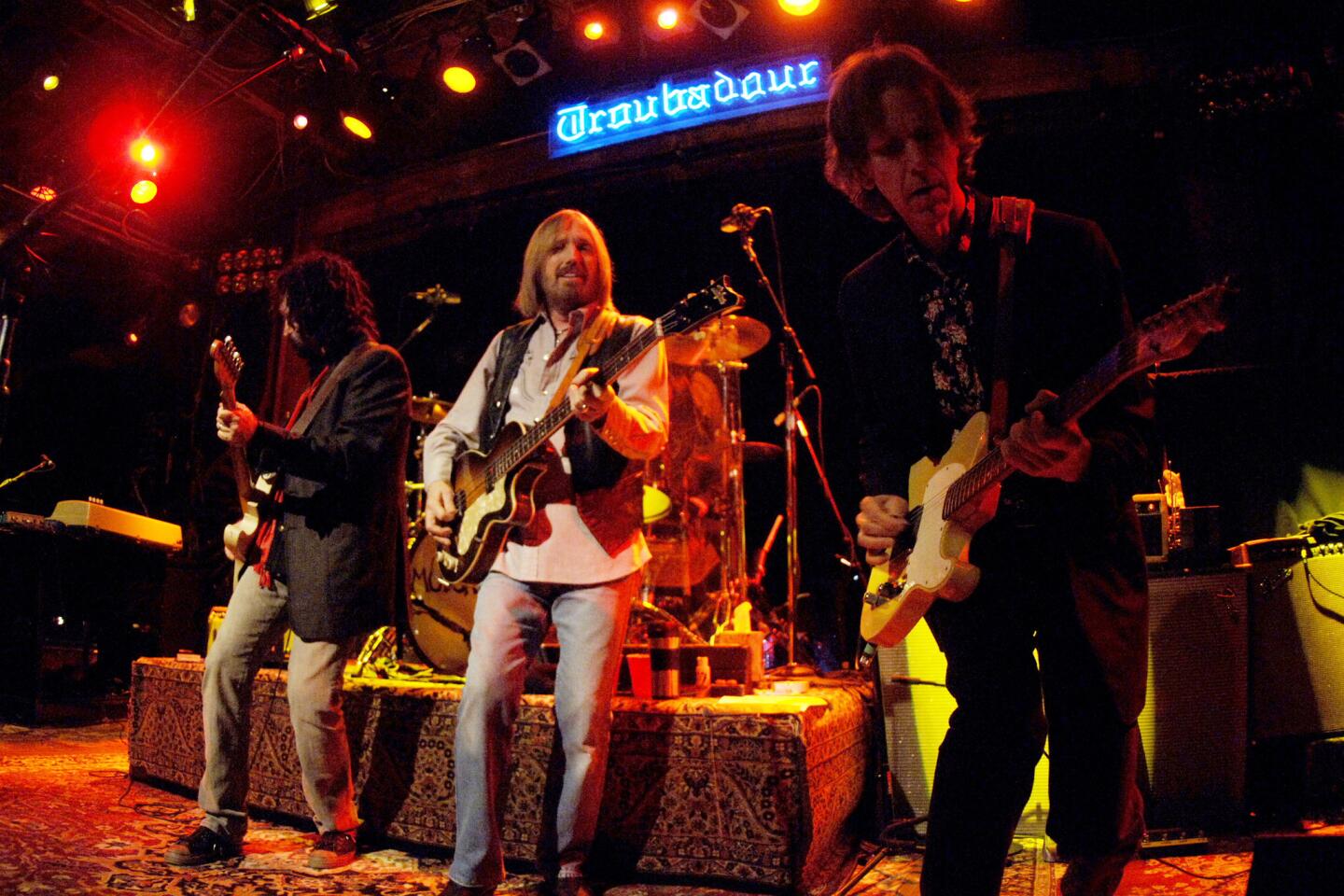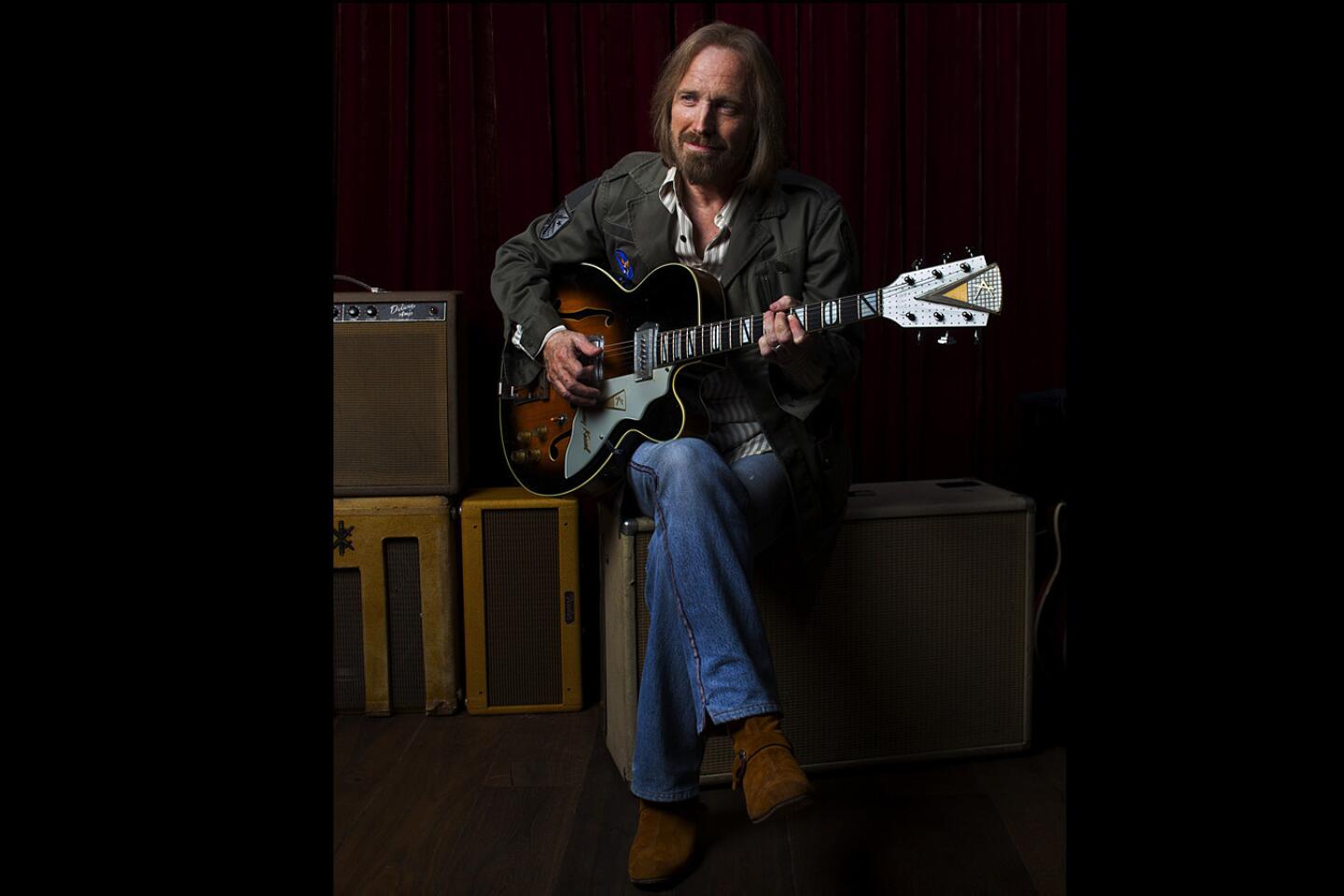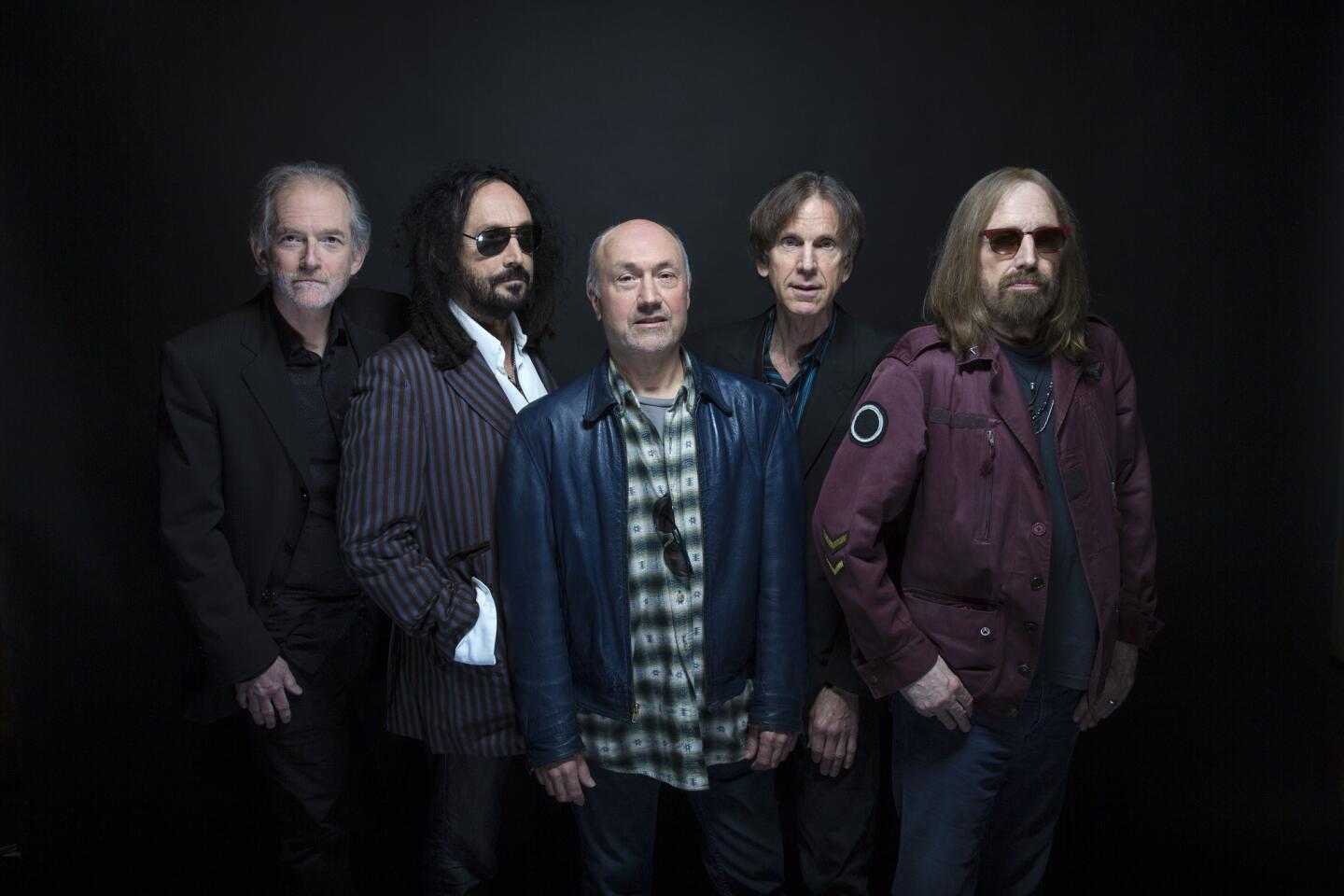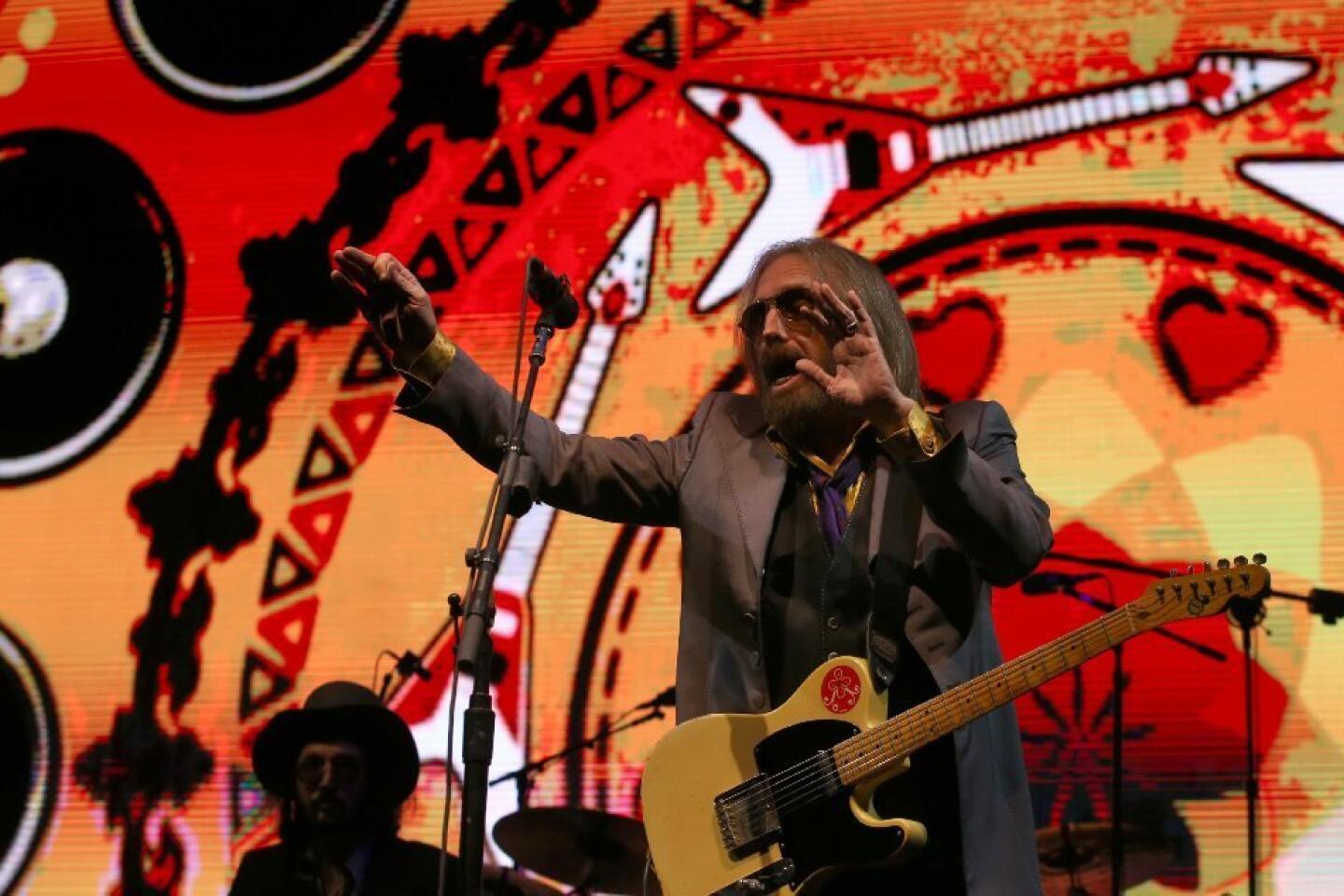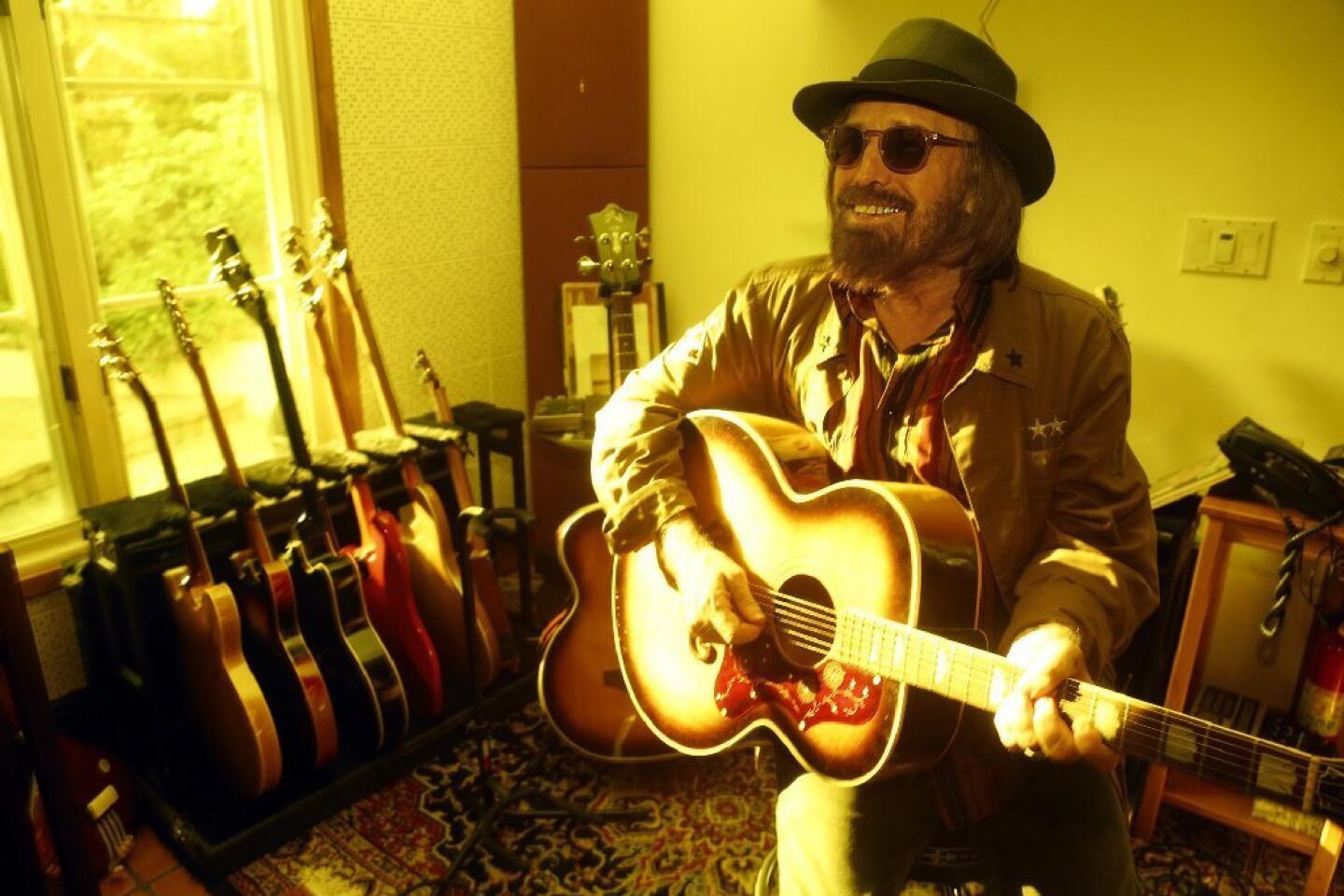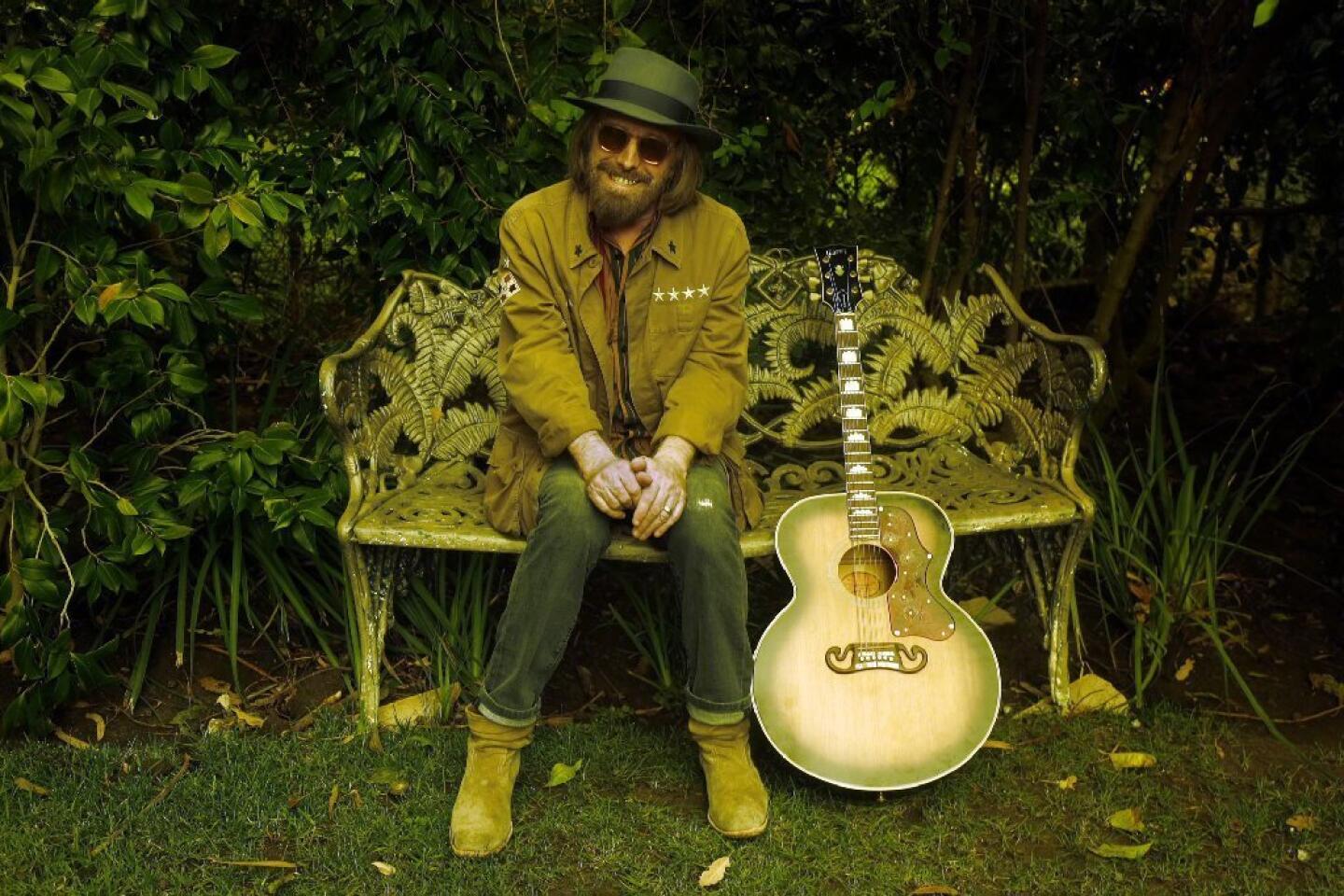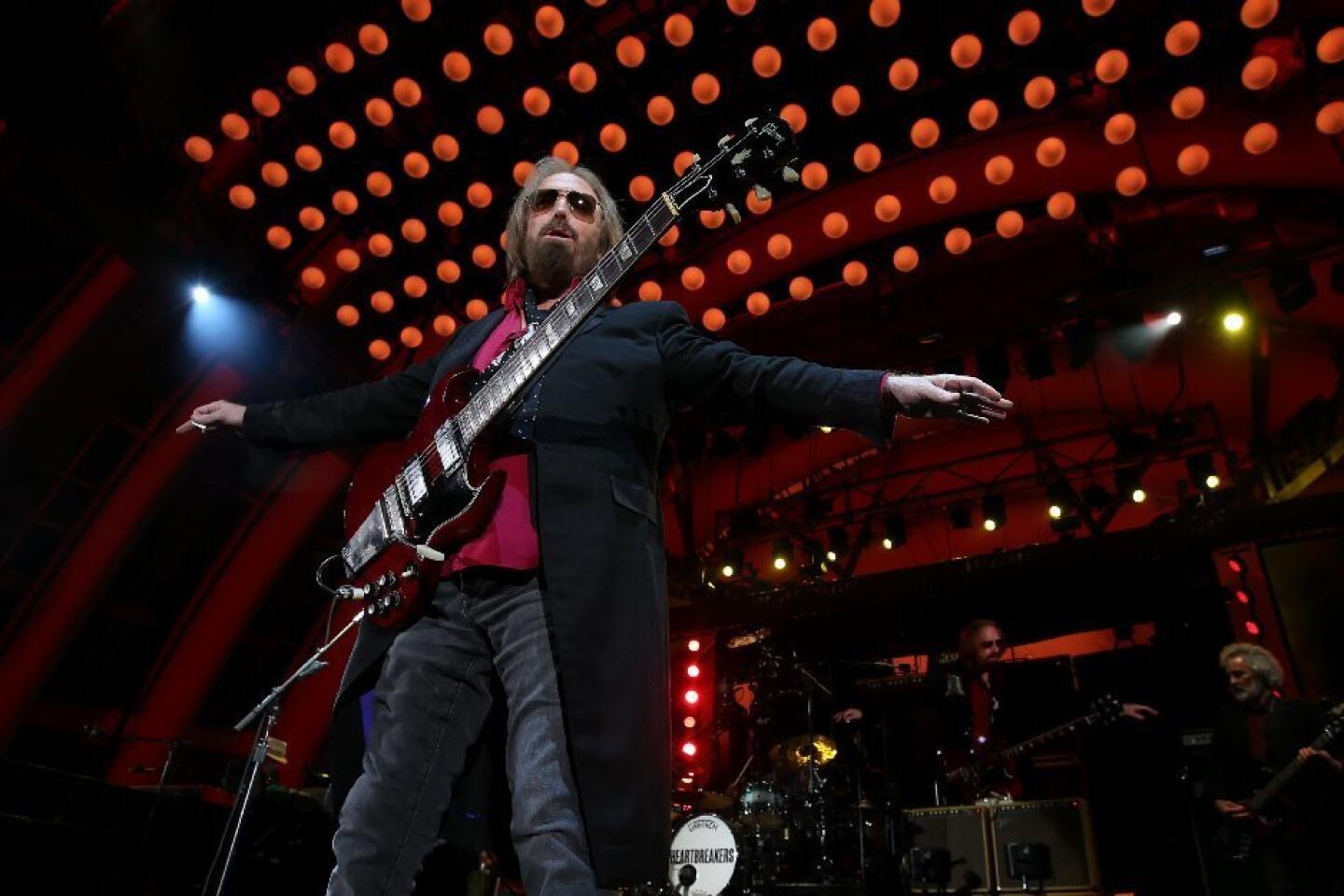Why losing Tom Petty feels like losing a piece of ourselves
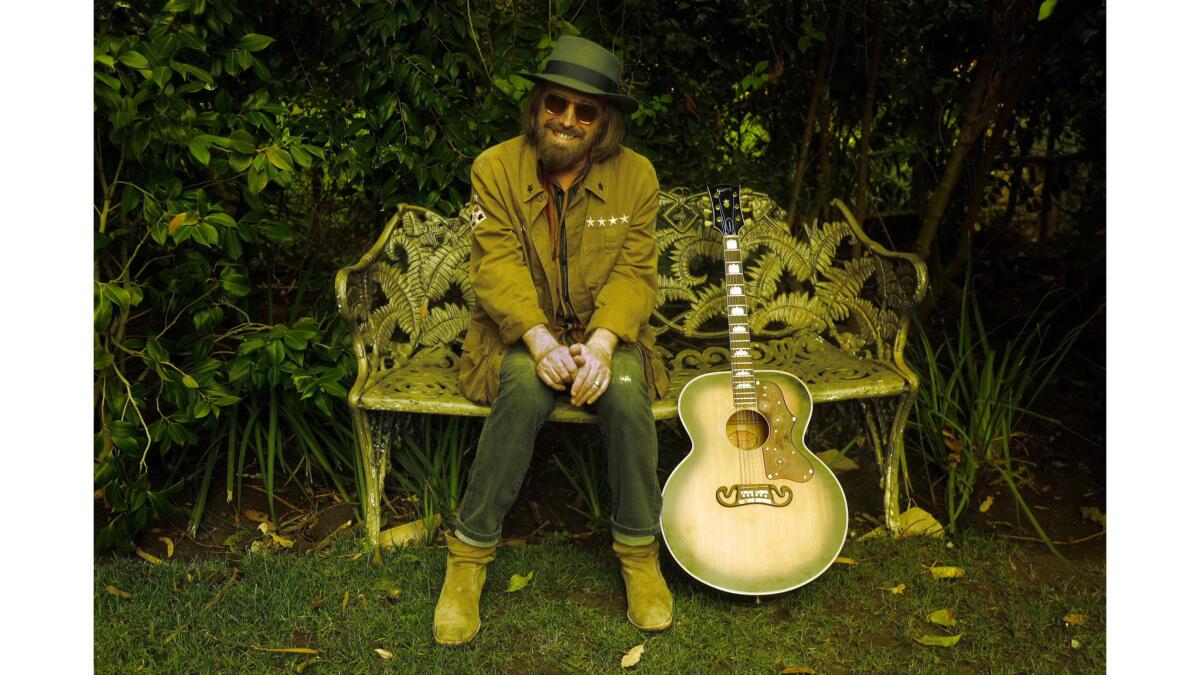
- Share via
If you sing karaoke, you’ve probably performed “American Girl.” If you play guitar, you’ve likely strummed “Learning to Fly.”
And if you’ve driven a car while celebrating some personal achievement or another, you’ve almost certainly belted out “Free Fallin’” at the top of your lungs as you drummed the steering wheel, just like Tom Cruise in that indelible scene from “Jerry Maguire.”
That’s how widely the music of Tom Petty reached over the course of his decades-long career, which came to an unexpected close when this most universally beloved of classic rockers died at age 66 after he suffered cardiac arrest at his home in Malibu.
The singer, guitarist and songwriter — who thrilled tens of thousands of fans just last month in an acclaimed three-night stand at the Hollywood Bowl with his longtime backing band, the Heartbreakers — was perhaps the quintessential American rock star, with an iconic shades-and-long-hair look, a nasal voice gloriously unsuited to any other genre and a seemingly bottomless bag of tunes that felt as though he’d written them to soundtrack the specifics of your life.
Bummed (and also a little angry) about a breakup? Cue up “Don’t Do Me Like That” or “You Got Lucky.” Eager (but also slightly scared) to set out on a new adventure? Try “Into the Great Wide Open” or “Runnin’ Down a Dream.”
Petty even had a song — a great one, from his stripped-down 1994 solo album “Wildflowers” — about how hard it is to explain your feelings to another person, despite the fact that that’s precisely what his music did for a diverse audience that spanned generations and encompassed folks from various walks of life.
In his typical plainspoken fashion, he called the tune “You Don’t Know How It Feels.”
Born and raised in Florida, where he started out with the band Mudcrutch, Petty didn’t take long to hit his stride after he moved to Los Angeles in the mid-1970s and relaunched Mudcrutch as Tom Petty and the Heartbreakers.
The group’s self-titled debut, released in 1976, contained two of his most enduring songs in “American Girl” and “Breakdown,” both of which showcased his ability to synthesize the music of his influences — from Little Richard to Elvis Presley to the Beatles to Johnny Cash — in original material as catchy as it was emotionally legible.
“She was an American girl raised on promises,” he sang over a jittery yet irresistible groove, “She couldn’t help thinking that there was a little more life somewhere else.”
Who couldn’t relate to the hope, and the threat of disappointment, in lines like those?
Three years later, the Heartbreakers found commercial success to match their easy likability with 1979’s “Damn the Torpedoes,” which sold millions and spawned additional rock radio staples like “Refugee” and “Don’t Do Me Like That.”
Petty himself became a sharp-featured heartthrob in 1981 when he duetted with Stevie Nicks of Fleetwood Mac in “Stop Draggin’ My Heart Around,” a tune Nicks famously swiped from Petty for her first solo album, “Bella Donna.”
Yet if Petty burned bright from the beginning, he maintained a consistency over the next couple of decades that made him the envy of even his idols — several of whom, including Bob Dylan and George Harrison, he joined in the late-’80s supergroup the Traveling Wilburys.
His continued relevance derived in part from Petty’s facility for the then-emerging art of music video; some of the singer’s elaborately designed clips, such as those for “Don’t Come Around Here No More” (a creepy riff on “Alice in Wonderland”) and “Free Fallin’” (with its swooping crane shot over Ventura Boulevard) are still among the most recognizable of the MTV era.
He also knew how to adapt his music to reflect the shifting sound of rock, whether it was emphasizing Benmont Tench’s eerie synth lick in “You Got Lucky” or building “Mary Jane’s Last Dance” around a heavy, low-slung beat (and a sly weed reference) that felt like an old-timer’s nod to the rise of another important L.A. musician, Dr. Dre.
Crucially, though, those updates of the Heartbreakers’ style never came off as desperate or opportunistic. In the same way that he could write about California without alienating listeners elsewhere — think of the countless Midwesterners who’ve hoisted beers as they sing about “all the vampires walking through the Valley” — Petty roped in fresh listeners while holding onto his core.
At June’s Arroyo Seco Weekend festival in Pasadena, which he headlined, Petty played to a crowd clearly filled with people who’d discovered him at different points. Yet nobody’s enthusiasm came at the expense of anybody else’s; fans had their favorites, but they’d come to hear it all — including new stuff.
Petty’s stint at the Bowl wrapped up a long tour meant to celebrate the Heartbreakers’ 40 years together. But in addition to the classics he did every night, Petty routinely played “Forgotten Man,” a noisy portrait of a guy in pain from his most recent album, 2014’s “Hypnotic Eye.” It was just one of the vivid tunes Petty wrote and recorded years after many in his position would’ve stopped searching for inspiration.
Indeed, Petty’s many admirers long ago helped secure his status as an influence nearly on par with those he looked up to.
Today, it’s almost impossible to imagine modern country music without Petty, who finished the work the Eagles began when they blended rootsy acoustic instruments with tougher rock rhythms. In the early 2000s the Strokes took off thanks to an unabashed rip of “American Girl” they called “Last Nite.”
Even Sam Smith, the moody English soul singer, revised the writing credits for his Grammy-winning “Stay With Me” to reflect the song’s debt to Petty’s supple melody from “I Won’t Back Down.” (Petty himself had been accused earlier of cribbing from the Jayhawks and the Replacements.)
On his website at the time of the Smith incident, Petty struck a forgiving tone in regard to what he called the younger singer’s “musical accident.”
“All my years of songwriting have shown me these things happen,” he wrote, and it was easy to believe Petty held no ill will. More than most, he understood that the value of a song lies in how far it travels.
Twitter: @mikaelwood
ALSO
From the Archives: Tom Petty breaks down 10 of his songs, including big hits and obscure gems
Tom Petty and the Heartbreakers, an L.A. band, stare at ‘Hypnotic Eye’
Review: Tom Petty and the Heartbreakers look back on four decades, but leave the nostalgia at home
More to Read
The biggest entertainment stories
Get our big stories about Hollywood, film, television, music, arts, culture and more right in your inbox as soon as they publish.
You may occasionally receive promotional content from the Los Angeles Times.
